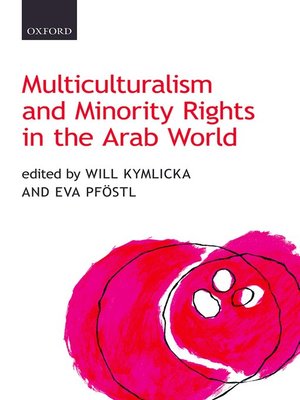
Sign up to save your library
With an OverDrive account, you can save your favorite libraries for at-a-glance information about availability. Find out more about OverDrive accounts.
Find this title in Libby, the library reading app by OverDrive.



Search for a digital library with this title
Title found at these libraries:
| Loading... |
Since the Arab Spring, Arab states have become the new front line in the struggle for democratization and for open societies. As the experience of other regions has shown, one of the most significant challenges facing democratization relates to minority rights. This book explores how minority claims are framed and debated in the region, and in particular, how political actors draw upon, re-interpret, or resist both the new global discourses of minority rights and more local traditions and practices of co-existence. The contributors examine a range of pre-colonial, colonial, and post-colonial factors that shape contemporary minority politics in the Arab world, and that encumber the reception of international norms of multiculturalism. These factors include the contested legacies of Islamic doctrines of the 'dhimmi' and the Ottoman millet system, colonial-era divide and rule strategies, and post-colonial Arab nation-building. While these legacies complicate struggles for minority rights, they do not entail an 'Arab exceptionalism' to global trends to multiculturalism. This volume explores a number of openings for new more pluralistic conceptions of nationhood and citizenship, and suggests that minority politics at its best can serve as a vehicle for a more general transformative politics, supporting a broader culture of democracy and human rights, and challenging older authoritarian, clientalistic, or patriarchal political tendencies. The chapters include both broad theoretical and historical perspectives as well as more focused case studies (including Western Sahara/Morocco, Algeria, Israel/Palestine; Sudan; United Arab Emirates, and Iraq).






